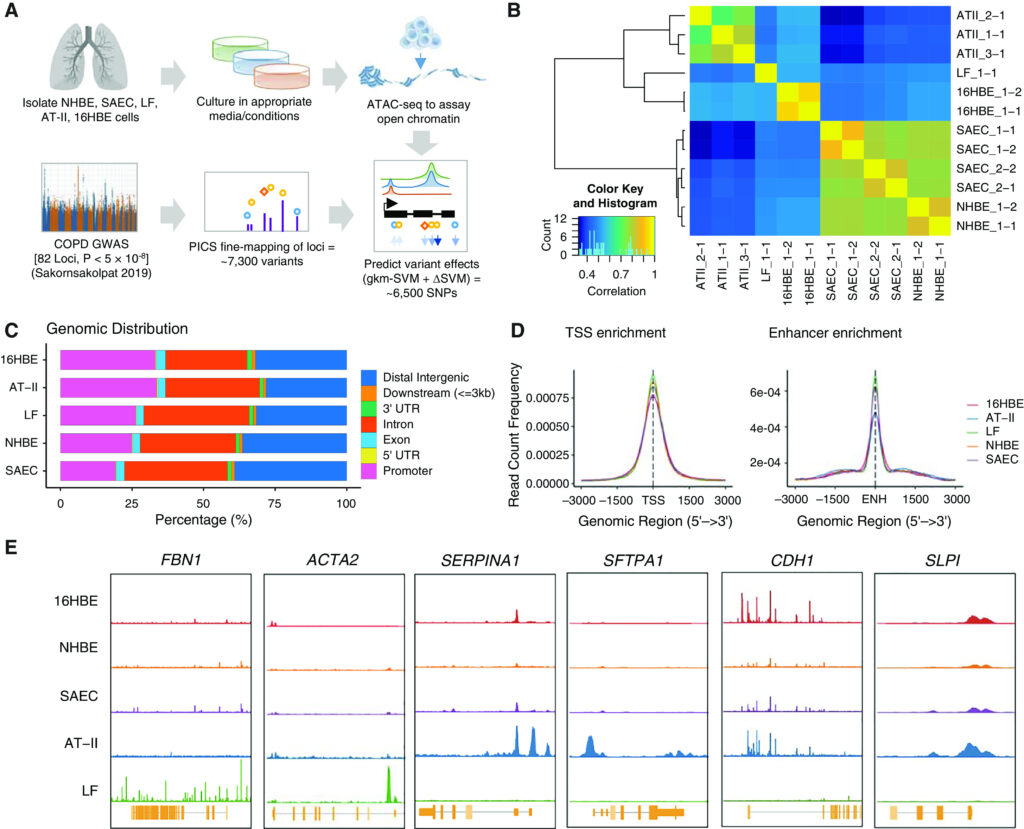Our team uses genetic, integrative omic, and machine learning approaches to identify and characterize factors affecting the risk and heterogeneity of chronic respiratory disease.
About
The overarching goal of our group is to advance the understanding and treatment of respiratory diseases through data analysis of large cohorts, with a focus on genomics in COPD and interstitial lung disease. We are based in the Channing Division of Network Medicine (CDNM), a research division of the Department of Medicine at Brigham and Women’s Hospital. We use integrative, network, and machine learning approaches to investigate disease etiology and heterogeneity through the analysis of large-scale epidemiologic, health outcome, spirometry and imaging, genotyping, whole genome/exome sequencing, microRNA sequencing, bulk and single cell RNA sequencing and ATAC-seq, and proteomic data. We additionally use Omics for risk prediction, endotyping, and systems pharmacology efforts to identify new therapeutic targets and drug repurposing candidates. In addition to COPD and ILD, we also have projects in mucous plugging, bronchiectasis, and asthma, through collaborations with Hunninghake, Diaz, and Washko labs, as well as the Harvard T.H. Chan School of Public Health, National Jewish Health, University of Colorado, Northeastern University, and the University of Virginia. We have access to large cohorts including the UK Biobank, TOPMed, COPDGene, ECLIPSE, and are funded by several R01 grants.
We are committed to training physician-scientists and have an excellent track record of funding success and high impact publications that help trainees to advance their careers.
Contact: Email michaelhcholab@gmail.com

